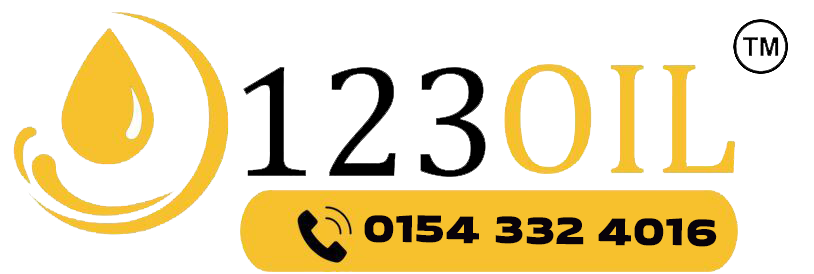No, domestic heating oil should not be used in a paraffin heater because heating oil (kerosene or gas oil) has a different chemical composition and higher impurity levels than refined paraffin. Using heating oil can produce excessive soot, smoke, and odour, and may damage the heater’s wick or burner. For safety and efficiency, always use high-quality paraffin fuel specifically designed for paraffin heaters.
With rising energy costs and changing fuel options, many households in the UK are exploring alternative ways to heat their homes. Among the common queries homeowners have is whether domestic heating oil can be safely used in a paraffin heater. On the surface, both fuels may seem similar, they’re both oil-based and used for heating, but the reality is more complex.
In this guide, we’ll explore the differences between heating oil and paraffin, their chemical compositions, and the risks involved in substituting one for the other. By the end, you’ll have a clear understanding of why it’s essential to choose the right heater fuel for your appliance.
Understanding Domestic Heating Oil
Domestic heating oil, also known as kerosene or 28-second oil, is the most common type of fuel used in oil-fired boilers, Aga cookers, and range-style heaters in the UK. It’s a refined petroleum product designed specifically for central heating systems that require efficient combustion, minimal soot, and stable heat output.
There are two main types of domestic heating oil:
- Kerosene (28-second oil): This is the standard form of home heating oil used in domestic boilers. It burns cleanly and efficiently.
- Gas oil (35-second oil): This is a heavier fuel typically used in industrial or agricultural heating systems and some older commercial boilers.
While both are forms of heating oil, they differ in viscosity and burn characteristics. It’s vital to understand that kerosene is much lighter and more refined than gas oil, making it better suited to smaller domestic systems.
What Is a Paraffin Heater?
A paraffin heater is a portable heating device that burns paraffin, a light petroleum-based liquid, to produce heat. These heaters are particularly popular in workshops, garages, conservatories, and emergencies because they are independent of electricity and easy to move.
Paraffin heaters are designed to operate with highly refined, low-odour paraffin fuel. The combustion process relies on clean burning to avoid smoke and fumes inside enclosed spaces. This is why the type of heater fuel you use matters so much, any deviation can lead to serious safety or performance issues.
Chemical Difference between Paraffin and Heating Oil
Although both paraffin and heating oil are derived from crude oil, they are refined differently and have distinct chemical properties.
Fuel Type | Composition | Sulphur Content | Common Uses |
Paraffin | Highly refined, low odour, lighter hydrocarbons | Very low | Portable heaters, lamps, and stoves |
Kerosene (Heating Oil) | Slightly heavier hydrocarbons | Higher than paraffin | Domestic boilers, cookers, central heating |
Gas Oil (Diesel) | Heavier and less refined | Higher | Industrial machinery, agricultural heating |
Paraffin is a purer form of kerosene, but the refining process makes a huge difference. Paraffin has fewer impurities, burns with less odour, and produces less soot. Heating oil, while efficient in boilers, is not suitable for direct use in portable or indoor heaters.
Can Domestic Heating Oil Be Used in a Paraffin Heater?
- In simple terms: No, you should not use domestic heating oil in a paraffin heater.
Even though both fuels are related, using heating oil in a paraffin heater can cause serious issues. Here’s why:
Higher Sulphur and Impurities
Domestic heating oil contains more sulphur and additives designed for outdoor boilers or large systems. When burned indoors, these can produce strong odours, smoke, and potentially harmful fumes.
Incorrect Combustion
Paraffin heaters are calibrated for highly refined paraffin. Substituting with heating oil can result in incomplete combustion, leading to soot build-up, black smoke, and carbon monoxide emissions.
Safety Hazards
Heating oil is more viscous and less volatile than paraffin, meaning it burns differently. This can cause flame instability or even overheating of the burner, which is dangerous in an enclosed environment.
Damage to Equipment
The thicker consistency and different burn temperature of heating oil can damage the wick, burner, or fuel line in your paraffin heater, potentially rendering it unusable.
Warranty and Insurance Issues
Using the wrong fuel type voids most manufacturer warranties and may affect your home insurance coverage in the event of a fire or damage caused by improper use.
What Happens If You Use Heating Oil in a Paraffin Heater?
If you accidentally use heating oil in your paraffin heater, several things can go wrong:
- The heater may produce black smoke and leave a sticky residue on surfaces.
- You’ll likely notice a strong, unpleasant odour due to incomplete combustion.
- There may be a build-up of soot inside the heater’s components, reducing efficiency.
- Prolonged use could cause damage to the wick or burner, leading to malfunction.
In worst-case scenarios, there’s a risk of fire or carbon monoxide, especially in poorly ventilated rooms. Always turn off the heater immediately and drain the tank if the wrong fuel has been used.

The Right Fuel for Paraffin Heaters
To ensure safe and efficient operation, use only high-quality paraffin that’s intended for indoor heating applications. Here are your best options:
Premium Paraffin
This is the cleanest, most refined form of heater fuel, producing minimal odour and smoke. It’s ideal for indoor use and helps extend your heater’s lifespan.
Standard Paraffin
A more affordable option for outdoor or well-ventilated spaces, but it may produce a slight odour during use.
Low Odour Heater Fuel
Specifically formulated for portable heaters, this fuel burns efficiently with virtually no fumes, perfect for home use.
Always buy your heater fuel from a trusted supplier to guarantee purity and performance. Using off-spec or low-grade fuel can compromise both safety and efficiency.
Alternatives to Paraffin
If paraffin is not easily available, you may wonder about alternatives. While heating oil might seem tempting due to its availability, it’s not suitable for indoor heaters. However, there are some safer substitutes:
Premium Kerosene
Similar to paraffin but with slightly different refining properties, premium kerosene can sometimes be used in place of paraffin, but check your heater manufacturer’s guidance first.
Synthetic Heater Fuels
These are modern, cleaner alternatives that replicate paraffin’s burn characteristics while reducing odour and emissions.
Bio-based Heating Fuels
Environmentally conscious homeowners can consider renewable fuels derived from waste oils or plant-based sources. However, always ensure compatibility before use.
How to Store Paraffin and Heating Oil Safely
Both paraffin and heating oil are flammable liquids, so proper storage is vital.
For paraffin heaters:
- Store paraffin in approved metal or plastic containers.
- Keep containers out of direct sunlight and away from heat sources.
- Never store paraffin in containers previously used for petrol or other fuels.
- Always label containers clearly.
For domestic heating oil:
- Use a bunded oil storage tank that complies with UK regulations.
- Inspect tanks regularly for leaks or corrosion.
- Keep fuel out of reach of children and pets.
Safe storage ensures fuel longevity and prevents contamination, which can affect performance or cause safety risks.
Environmental Considerations
While both paraffin and heating oil are fossil-based fuels, their environmental impacts differ slightly. Paraffin heaters emit carbon dioxide and water vapour, contributing to greenhouse gas emissions, though in smaller quantities due to efficient combustion.
Domestic heating oil, when used correctly in modern condensing boilers, is relatively efficient but not suitable for small-scale heating devices. For eco-conscious households, renewable fuels like HVO (Hydrotreated Vegetable Oil) are emerging as greener alternatives for heating systems.
123 Oil is a leading the transition to cleaner, more sustainable fuel options for domestic and commercial heating.
Signs You’re Using the Wrong Heater Fuel
If you suspect that your paraffin heater isn’t running correctly, look out for these warning signs:
- Persistent smoke or odour during operation
- Yellow or flickering flame instead of a steady blue one
- Soot marks on the heater or walls
- Reduced heat output or irregular burning
These symptoms often indicate poor fuel quality or contamination. Stop using the heater immediately, clean it thoroughly, and refill it with the correct paraffin fuel.
Tips for Maintaining a Paraffin Heater
To keep your heater performing safely and efficiently:
- Always use the manufacturer-recommended paraffin fuel.
- Clean the wick regularly to prevent soot build-up.
- Ventilate the room during use to avoid condensation or fume build-up.
- Store fuel properly to prevent contamination.
- Service the heater annually, especially if used frequently in winter.
A well-maintained paraffin heater can provide reliable, cost-effective warmth throughout the colder months.
The Bottom Line: Keep Heating Oil Out of Paraffin Heaters
While heating oil and paraffin may share a similar origin, they are not interchangeable. Heating oil is designed for large, sealed boiler systems and contains additives unsuitable for indoor combustion. Paraffin heaters require highly refined, low-odour paraffin fuel for safe and efficient operation.
Using the wrong heater fuel may not only damage your appliance but also create dangerous fumes and pose a fire hazard. To stay safe, always buy the correct fuel, store it properly, and follow manufacturer recommendations.
If you’re unsure about which fuel to use, consult a professional or speak with your supplier before attempting a substitute. The small savings from using heating oil instead of paraffin aren’t worth the potential risks.
Frequently Asked Questions
No, mixing fuels can cause improper combustion, smoke, and damage to your heater. Always use pure paraffin fuel.
Kerosene and paraffin are closely related, but paraffin is more refined and has lower sulphur content, making it better suited for indoor heaters.
You'll likely experience odour, smoke, and soot build-up. Stop using the heater immediately and drain the fuel.
Yes, heating oil is excellent for domestic boilers, Aga cookers, and central heating systems, but not for portable heaters.
While not carbon-neutral, paraffin burns cleaner than many fossil fuels. Opt for low-odour or synthetic alternatives for reduced emissions.










